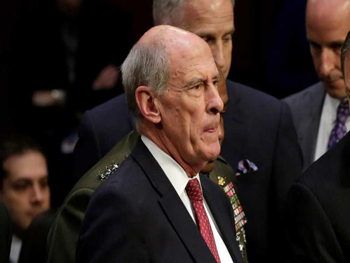Washington, May 12: Pakistan-based terrorist groups are planning to attack both India and Afghanistan, a top US spymaster has said.
"Islamabad has failed to curb militants and terrorists in Pakistan," Daniel Coats, Director of National Intelligence told members of the Senate Select Committee on Intelligence during a Congressional hearing on Worldwide threats.
 "These groups will present a sustained threat to the United States's interest in the region and continue to plan and conduct attacks in India and Afghanistan," Coats said.
"These groups will present a sustained threat to the United States's interest in the region and continue to plan and conduct attacks in India and Afghanistan," Coats said.
Pakistan, he rued, is expanding its nuclear arsenal in pursuing tactical nuclear weapons, potentially lowering the threshold for their use.
In South Asia, the intelligence community assesses that the political and security situation in Afghanistan will almost certainly deteriorate through 2018 even with a modest increase in military assistance by the United States and its partners, he told the lawmakers.
"This deterioration is undermined by its dire economic situation. Afghanistan will struggle to curb its dependence on external support until it contains the insurgency or reaches a peace agreement with the Taliban," he said.
"Meanwhile, we assess that Taliban is likely to continue to make gains especially in rural areas. Afghan Security Forces performance will probably worsen due to a combination of Taliban operations, combat casualties, desertion, poor logistic support and weak leadership," Coats said.
"Pakistan is concerned about international isolation and sees its position of India's rising international status including India's expanded foreign outreach and deepening ties to the United States.
"Pakistan will likely turn to China to offset its isolation, empowering a relationship that will help Beijing to project influence into the Indian Ocean," Coats testified before the committee.





Comments
Add new comment